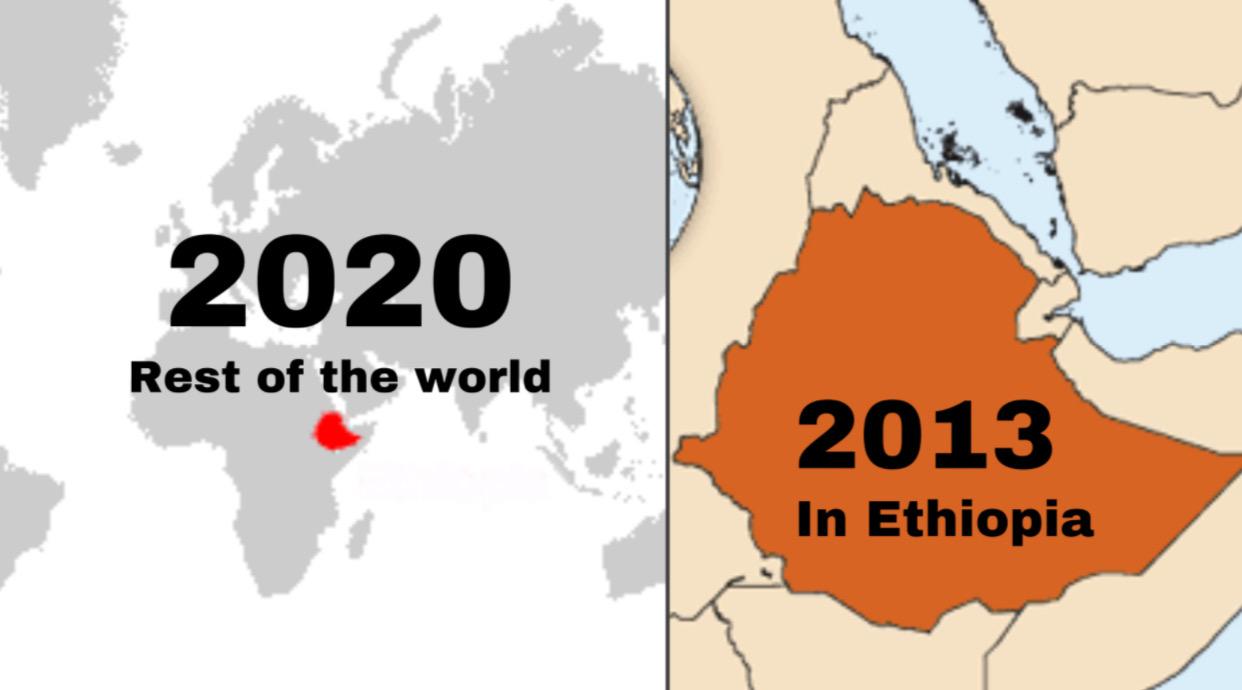You may think that it is 2020 worldwide. But not the same thing for Ethiopia as they recently entered their new year (2013) in September.
With a specific calendar seven or eight years behind the rest of the world, there are massive celebrations going on around the country or celebrate the New Year.
A calendar similar to the ancient Julian calendar, which began to withdraw from the West in the 16th century, follows the Horn of Africa country.
The Gregorian calendar has been adopted in the world, which consists of 365 days in a year, 366 days in a leap year.
Fortunately, the Coptic Calendar is used in Ethiopia, which places it behind the world for years.
The disparity in number is meant to be that the Ethiopian Orthodox Church opposes that Christ was born with the Roman Catholic Church.
While the Ethiopian Church followed a calendar linked to the calculation of Annunciation (the Jesus’ conception, not birthing) which the Egyptian monk historian, Annianus of Alexandria, arrived at. So in comparison to the Gregorian calendar which was factored into the calculation of the year when Jesus was born.
A year is 13 months in the Ethiopian calendar, 12 months each 30 days. The last month is the normal year of 5 days and a leap year of 6 days.
As in the Julian calendar, every four years without exception a leap year on the Ethiopian calendar occurs. Although most of the Christians celebrate Thanksgiving on December 25, other Christian Churches around the world celebrate Christmas on January 7.
“…The nation of Ethiopia is celebrate the New Year on 11 September, thanks to the adoption of the Coptic Calendar! This is because, as mentioned above, the Ethiopian Calendar follows the Coptic Calendar which was laid down by Emperor Augustus of Rome in the Julian Calendar in 25 BC on 29 August and thus defined the New Year on this date.
“Here, 11th September is in line with the Gregorian Calendar; in other words, it is 11th September for the world apart from Ethiopia, in which it is 29th August, the New Year,” explained in an article on Mind Blowing Facts.
Given the difference in calendar, travelers hardly face any discomfort as most Ethiopians are aware of the Gregorian calendar and some even interchangeably use both calendars.
 The African History Truly African
The African History Truly African

